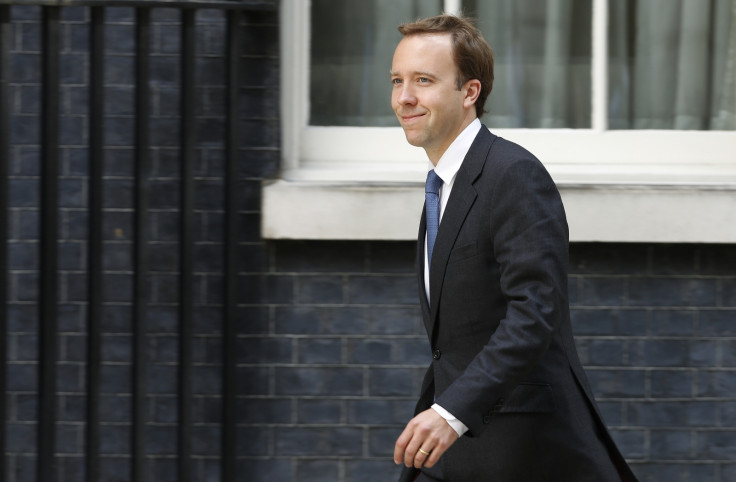London's tech community is sitting in a rich, elitist bubble that needs to be popped
To build products that connect with real people the tech sector needs to shed its privileged status.

Which London community best fits this description? An overwhelmingly white, male, bubble, obsessed with money, status and privilege, with little to offer the rest of the country? Is it (a) bankers, (b) the tech community, (c) both, or (d) neither? You may confer.
One thing that the Brexit vote has done is to throw into sharp relief focus the divisions in this nation: rich against poor, internationalist against local; north against south (or let's be honest, the rest of the country against London). "There has been a backlash against globalisation," Nouriel Roubini – the economist who correctly predicted the last financial crisis, told a recent meeting of the World Economic Forum. Did the tech community not get the memo?
Tales of crass social division have poured out of the global centre for tech, America's greater Bay Area. Tech "dudes" finding out that their house cleaner, hired via an app, is a homeless person; spiralling rents driving non-tech workers out of the city; elitist schools catering for tech kids. So far London appears to have escaped the worst excesses, so far.
So a recent standing-room only event examining the tech community's reaction to Brexit, held at Second Home, a "co-working" space for young start-ups in London's East End and run by a former Cameron special advisor turned landlord, was an opportunity for the tech community to disprove this characterisation. Alas, it was an opportunity missed.
With one honourable exception, this Remainer's Anonymous — not one person in the room had voted to leave the EU — wasn't an attempt by the community and the panel, comprising seven men and one woman, to understand the vote, to learn the lessons to see how the tech world should react or how it should bring its self-declared prowess to bridge the divisions. Instead the focus was on how to perpetuate tech's elite status.
In what was perhaps illustrative of the otherworldness of the event, at one point one panel member had to dash out to retrieve her smartphone left behind in an Uber cab. She did have the self-awareness to admit it was perhaps the quintessential #firstworldproblem.
What Brexit?
One thing the Brexit vote told us was how ill at ease the country is with immigration. The tech community's solution: How do we increase immigration? One solution, previously aired, was for London-only visas. It was a conversation of the deaf.
Time and again Brexit voters voiced problems like: "why can't I get my child into the right school?" "How can I get a job?" "Why does it take so long to see a doctor?" Too often "problems" in the tech world comprise: "who can deliver me a yellowfin tuna, mini caponata and sauce vierge the fastest?"
The overwhelming message from the panel was one of complacent status quo. No matter what, the tech community will continue down its wealth-strewn path regardless. But after all, this is a community used to getting its way. Invitations to Number 10, meetings with Royal Princes in stately palaces, the bestowment of the baubles and gewgaws of state. All had been freely showered on this sector.
No longer the government's favoured son
Now to be fair to London's tech sector, that is not without cause. It is fast gaining economic significance. A 2015 report suggested that digital technology now accounts for 3.5% of jobs in London and for 5% of gross value added produced.
However, its status as the favoured son may be in doubt with the change in government. No one knows what the new government's attitude is going to be regarding the tech sector. In the old Soviet Union you tried to work out who was up or down by who stood next to whom at the annual May Day parade. We are in the same place right now. What kind of smartphone (if any) does Theresa May have? Does new Chancellor Philip Hammond have an iPad, if so what model? Does Home Secretary Amber Rudd use Spotify?
The eagerness with which Hammond was prepared to welcome Japan's SoftBank purchase of the last remaining jewel in the UK's denuded old tech crown, ARM Holdings, suggests the sector should expect no special favours.
Number 10's high-gloss door used to stand ajar for the high-tech entrepreneurs, but May's clear-out of Cameron's consiglieri has stripped the community of its easy access to the levers of power. All of their champions, from Cameron and Osborne, down to Ed Vaizey, the minister for digital stuff, have been cast out onto the political heath. (One bright spot; the appointment of Matthew Hancock to replace Vaizey has gone down well).

Given the state of May's in tray you wonder if, for example, the 140,000 jobs dependent on Japanese companies in the UK and its relationship with Europe might be more pressing than the tribulations of Shoreditch start-ups in sourcing Hadoop programmers.
Avoiding the mantel banking wants to pass on
Honorable mention must go to one panel member, investor Saul Klein, for demanding the sector tackle real problems. "Social impact and commercial success shouldn't be mutually exclusive," he told the audience, urging them to use their talents to solve problems, not first-world annoyances. "What can I do to better understand major segments of the country?" he asked.
That isn't to say that some in tech aren't tackling some very real problems. Techfugees is trying to solve the refugee crisis; there are start-ups helping shops distribute sell-by-date food to the homeless. There are start-ups doing some impressive work in the fields of education and medicine, and the Government Digital Service has done some amazing work in delivering government IT projects on time, cheaply and that actually helps citizens.
If the tech community wants to avoid assuming the mantel that bankers will only be too happy to shed, it needs, as Klein says, to get out of the London bubble to understand what is going on in the rest of the country and build real products that have real impact with real people.
It would be an interesting experiment to take that exact same panel and run it again in Solihull, Swansea or Sunderland. How different the questions, and answers, would be.
© Copyright IBTimes 2025. All rights reserved.






















